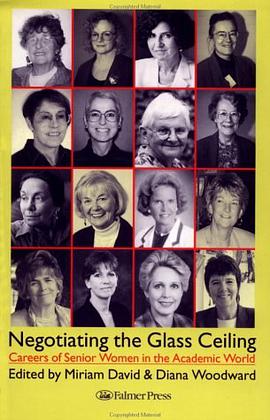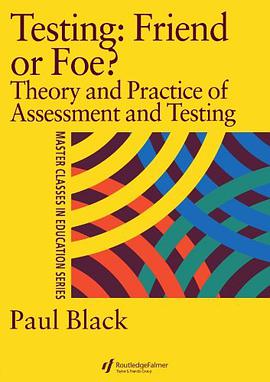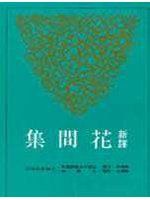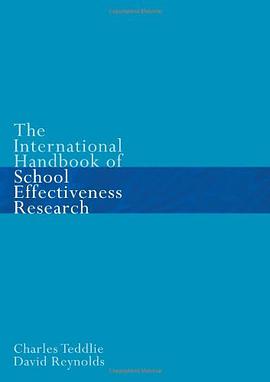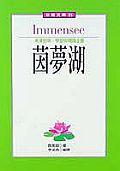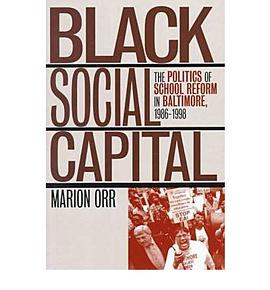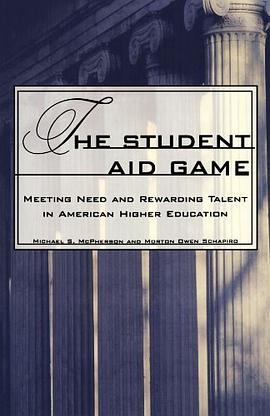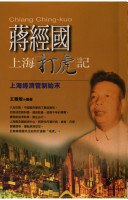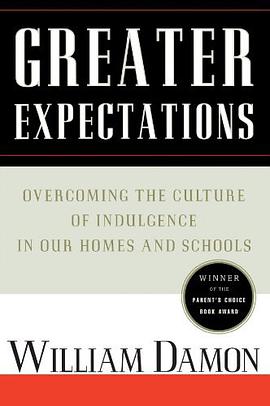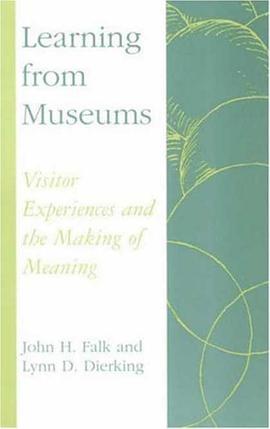

具体描述
Why do people go to museums and what do they learn there? What roles can museums serve in a learning community? How can museums facilitate more effective learning experiences? John H. Falk and Lynn D. Dierking investigate these questions in Learning from Museums. Synthesizing theories and research from a wide range of disciplines, including psychology, education, anthropology, neuroscience and museum research, Falk and Dierking explain the nature and process of learning as it occurs within the museum context and provides advice on how museums can create better learning environments. Visit the authors' web page
作者简介
Review
Those interested in visitor studies and informal educational environments will find much to engage them and to think about in this book and I expect to see many quotations from it in student work. (Paulette McManus, (University College, London) Visitor Studies Today!)
John Falk and Lynn Dierking . . . put to profitable effect their many years of familiarity with the field, including long service at the Smithsonian. This is a splendid book where the pages themselves unequivocally link the concepts of fun and learning. The writing is dense but never dry, didactic but never dogmatic. . . .The book's careful organization makes it easy and pleasant to read, and the key concepts placed succinctly at the end of each chapter enable the hurried and harried professionals to retrieve information without having to remember page numbers. (Jane Manaster Museline, (Texas Association Of Museums))
John Falk and Lynn Dierking have been talking to museum visitors and conducting research on the visiting experience for over twenty years. . . . Learning from Museums . . . elaborates topics such as museums and the individual, communities of learners, documenting learning, improving the visitor experience, museums in society, and the future of museums. Visits are both learning and fun, choice of what and when to learn is intrinsic to the museum experience, conversation is a primary mechanism of knowledge construction . . . and meaning is elaborated by subsequent experiences. . . . Each chapter finishes with conclusions, key points, and very extensive references: very accessible stuff!. . . When museums take advantage of visitor research they . . . acknowledge the importance of good communication. The message of Learning from Museums must be understood by all concerned with that fundamental aim of museums: the increase and diffusion of understanding. (Des Griffin, The Australian Museum, Sydney Museum National)
In Learning from Museums, [the authors] embed practical issues in the broader theoretical and research contexts. With their help we can begin to understand more about what is really going on during the learning process in general, information that can then be applied to the specifics of museums. For once we have a better understanding of how museum visitors make sense of these experiences, then we can make more informed decisions about how to create the best possible exhibitions and programs for them. (Michael Spock, (University of Chicago) From The Foreword)
John H. Falk and Lynn D. Dierking are founders and directors of the Institute for Learning Innovation in Annapolis, Maryland. Their books include Lessons without Limit, The Museum Experience, and Free-Choice Science Education.
目录信息
Foreword vii
Preface xi
1. Learning from Museums: An Introduction 1
2. The Personal Context 15
3. The Sociocultural Context 37
4. The Physical Context 53
5. Museums and the Individual 69
6. Communities of Learners 91
7. A Place for Learning 113
8. The Contextual Model of Learning 135
9. Documenting Learning from Museums 149
10. Making Museums Better Learning Experiences 177
11. Museums in the Larger Society 205
12. The Future of Museums 219
References 237
Index 265
About the Authors 271
· · · · · · (收起)
读后感
评分
评分
评分
评分
用户评价
我最近读了《Learning from Museums》,这本书给我的感觉非常奇特,有点像是在读一本散文集,又有点像是在读一本方法论。作者的文字风格非常随性,但又充满了智慧。我被书中一个关于“童年视角下的博物馆”的章节深深吸引,它让我回想起小时候参观博物馆的场景,那时一切都充满了神秘和新奇。作者似乎非常善于捕捉那些容易被我们忽略的细节,比如展品上细微的划痕,或是墙壁上斑驳的色彩,并从中解读出丰富的故事。这本书并非那种枯燥乏味的学术论著,它更像是一场与作者的心灵对话,充满了个人化的体验和感悟。我特别喜欢书中关于“如何带着问题去参观博物馆”的建议,它打破了我以往被动接受信息的模式,而是鼓励我主动去寻找答案,去建立自己的知识体系。书中的一些观点,比如“博物馆是记忆的容器”,让我对“记忆”这个概念有了更深层次的理解。它让我意识到,我们不仅仅是在看展品,更是在与那些逝去的时光对话,与那些曾经鲜活的生命产生连接。总的来说,这本书为我打开了一扇新的窗户,让我以一种更加丰富、更加人性化的方式去理解博物馆,也去理解我们自身。
评分《Learning from Museums》这本书,不得不说,它的构思非常巧妙,而且信息量巨大,甚至到了让人有些应接不暇的地步。作者似乎将无数的博物馆瞬间和思考碎片都浓缩在了一起,形成了一种独特的阅读体验。我被它其中关于“发现隐藏的联系”的章节深深震撼,它不仅仅是罗列展品,而是试图揭示不同时代、不同文化之间千丝万缕的联系,这种宏观的视角让我对整个世界的认知都有了某种程度的重塑。书中反复强调的“好奇心”的力量,以及如何将其转化为深入探究的动力,这一点我觉得对任何年龄段的读者都极具启发性。我个人尤其欣赏书中对“情境化学习”的解读,它解释了为什么在博物馆中,展品的陈列方式、环境氛围,甚至解说词,都对我们理解和吸收知识有着至关重要的影响。感觉作者就像一位经验丰富的导游,带我们穿梭于不同的时空,用敏锐的观察力和深刻的洞察力,为我们解读那些沉默的文物。这本书不是那种一蹴而就的读物,它更像是一本需要反复品味、细细揣摩的书籍,每一次阅读都会有新的发现和感悟。我对书中提到的“博物馆作为一种反思的场所”的观点深以为然,它促使我们去思考过去,审视现在,并展望未来。
评分读完《Learning from Museums》,我有一种强烈的冲动,想要立刻收拾行囊,去踏上一段新的博物馆探索之旅。这本书的魅力在于,它不仅仅提供了参观的技巧,更重要的是,它激发了我内心深处对知识和探索的热情。作者的视角非常广阔,他不仅关注艺术品和历史文物,还对科学博物馆、自然历史博物馆等都进行了深入的解读,让我看到了博物馆的多样性和无限可能性。书中关于“个人化解读”的论述,让我意识到,每个参观者都可以成为自己旅程的创造者,不必拘泥于既定的框架。我被其中一个关于“博物馆中的情感体验”的章节深深打动,它让我明白,参观博物馆不仅仅是理性的认知过程,更是一个充满情感共鸣的体验。作者似乎在用一种诗意般的语言,描绘着那些无声的展品所蕴含的生命力。这本书让我意识到,博物馆不仅仅是收藏和展示的场所,它更是一个连接过去与现在、连接人与人、连接物质与精神的桥梁。它的阅读体验非常丰富,既有理论的深度,又有实践的指导,让我受益匪浅。
评分这本《Learning from Museums》确实是近期让我印象深刻的一本书,虽然我还没来得及把它完全细读,但仅仅是翻阅,就已经被它所传递的理念深深吸引。作者似乎在用一种非常沉浸式的方式,引导读者去体验参观博物馆的过程,仿佛置身于那些古老而庄重的殿堂。书中对不同类型博物馆的细致描绘,从历史文物到现代艺术,再到科学技术,都展现出了作者对这些场所的独特视角。我尤其喜欢其中关于“如何真正‘看’一件展品”的段落,它不仅仅是简单的介绍,更像是一种对话,鼓励我们去思考展品背后的故事,去感受它所承载的时间和情感。书中提供的许多参观建议,比如如何规划路线,如何与展品建立联系,都显得非常实用。我甚至觉得,这本书不仅仅是关于博物馆的,它更像是一份关于如何更好地学习、如何更深入地理解世界的指南。它挑战了我们过去那种走马观花的参观模式,而是倡导一种更加主动、更加个性化的探索方式。读完这本书,我感觉自己对即将到来的下一次博物馆之行充满了期待,甚至有点跃跃欲试,想要立刻运用书中的方法去实践。它让我明白,博物馆不仅仅是陈列物品的地方,更是承载着知识、历史和文化的活生生的空间,而《Learning from Museums》就是开启这些空间的钥匙。
评分《Learning from Museums》这本书,让我对“学习”这件事本身有了全新的认识。作者的叙述方式非常独特,他似乎将自己沉浸在各种各样的博物馆场景中,然后将那些体验和感悟,以一种非常生动的方式呈现出来。我被书中关于“感官学习”的讨论所打动,它提醒我,除了视觉,我们还可以通过听觉、嗅觉,甚至触觉(当然是间接的)来感知和理解展品。书中对“故事性”在博物馆教育中的作用进行了深刻的探讨,它让我明白,再枯燥的知识,只要赋予了故事,就能变得鲜活起来。我特别欣赏作者在书中提到的“博物馆作为一种文化对话的平台”的观点,它让我意识到,博物馆不仅仅是单向的知识传播,更是一个促进不同文化、不同观点交流的场所。这本书让我开始反思,在日常生活中,我们是否错过了太多可以通过“博物馆式”的观察和思考来学习的机会。它鼓励我走出舒适区,去探索那些未知的事物,去发现隐藏在平凡中的非凡。这本书的语言也非常有感染力,仿佛我能闻到展柜里古籍的味道,听到石碑上雕刻的回响。
评分观众研究领域的突破性著作,作者提出了划时代的情景学习模式,用于描述观众博物馆学习的影响因素。是对学习体验最为全面和深度的理解。目前该书已经第二版了,但是情景学习模式的框架依旧还在。
评分博物馆的情境学习模式。除了个人、社会文化和物理三种情境,还需要考虑到时间因素。其实不但prior knowledge很重要,subsequent knowledge也很重要。三种情境不是绝对的和排斥的,而是相互影响和重叠的。博物馆学习的经典理论之一。而且全书都没怎么提到education。
评分博物馆的情境学习模式。除了个人、社会文化和物理三种情境,还需要考虑到时间因素。其实不但prior knowledge很重要,subsequent knowledge也很重要。三种情境不是绝对的和排斥的,而是相互影响和重叠的。博物馆学习的经典理论之一。而且全书都没怎么提到education。
评分观众研究领域的突破性著作,作者提出了划时代的情景学习模式,用于描述观众博物馆学习的影响因素。是对学习体验最为全面和深度的理解。目前该书已经第二版了,但是情景学习模式的框架依旧还在。
评分观众研究领域的突破性著作,作者提出了划时代的情景学习模式,用于描述观众博物馆学习的影响因素。是对学习体验最为全面和深度的理解。目前该书已经第二版了,但是情景学习模式的框架依旧还在。
相关图书
本站所有内容均为互联网搜索引擎提供的公开搜索信息,本站不存储任何数据与内容,任何内容与数据均与本站无关,如有需要请联系相关搜索引擎包括但不限于百度,google,bing,sogou 等
© 2026 onlinetoolsland.com All Rights Reserved. 本本书屋 版权所有




